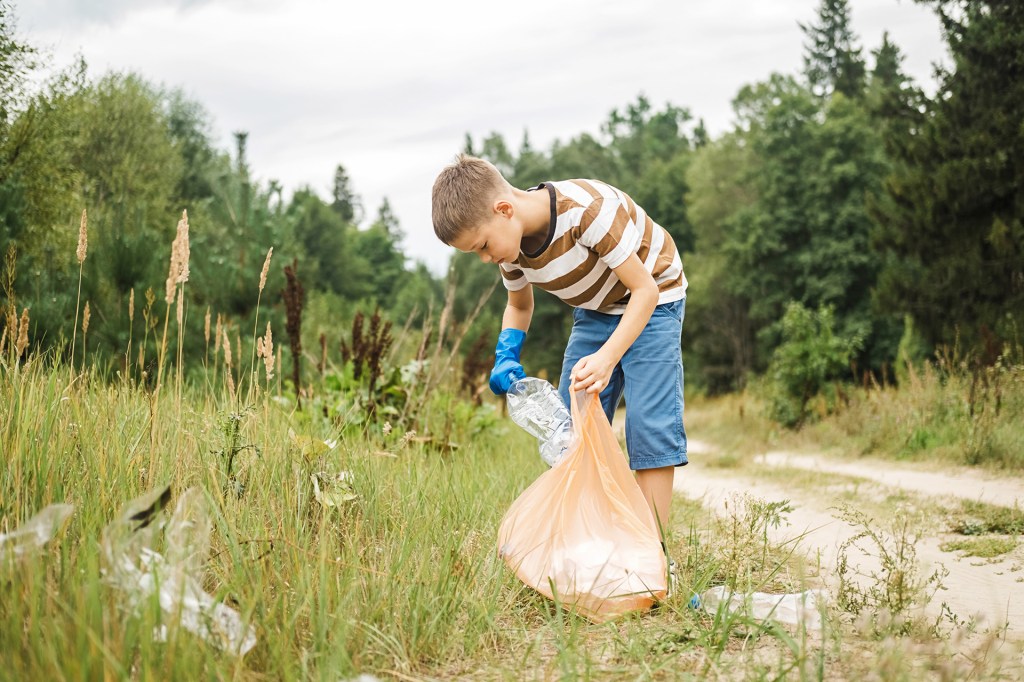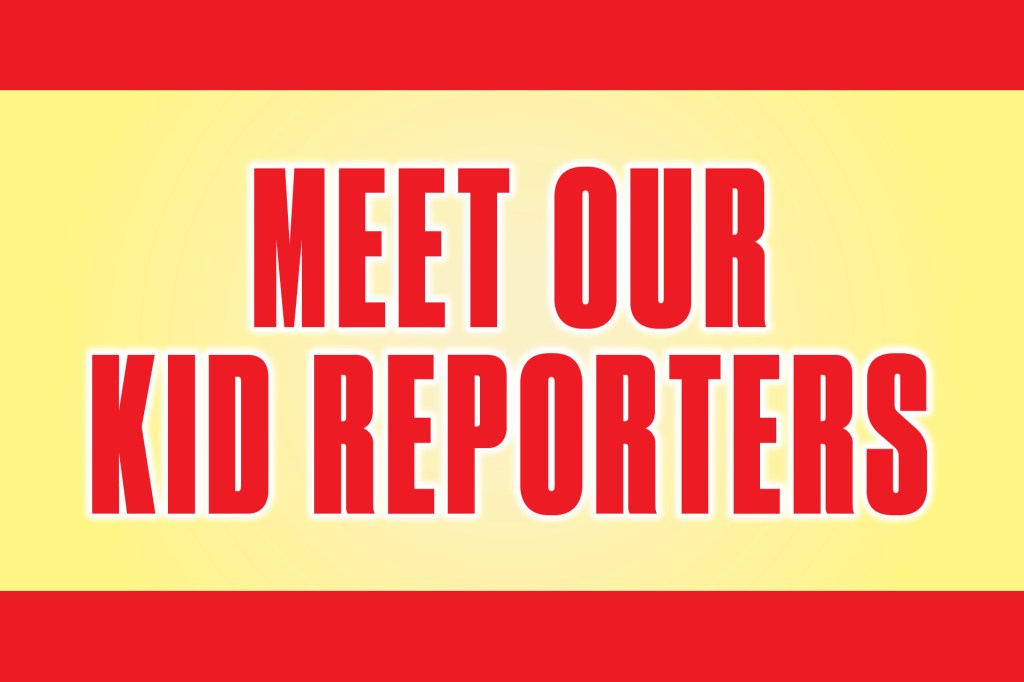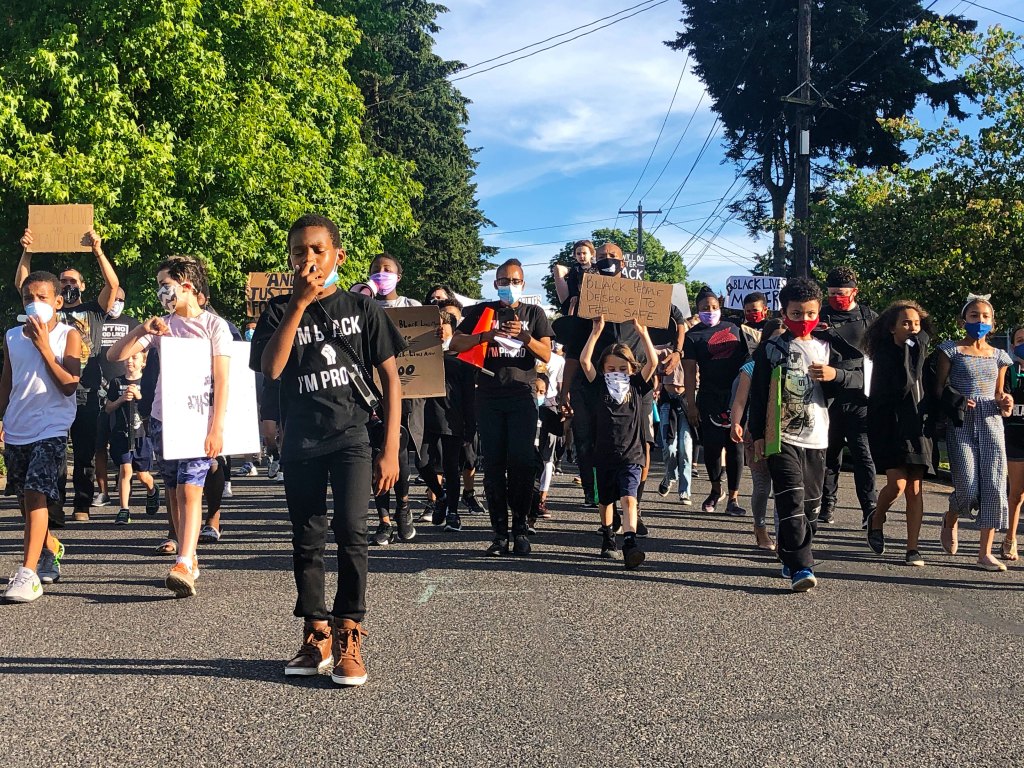
One morning in June 2020, hundreds of people gathered in Saint Paul, Minnesota. They started marching down a tree-lined street. They carried signs: “No Justice? No Peace” and “Love, Respect, Equality.”
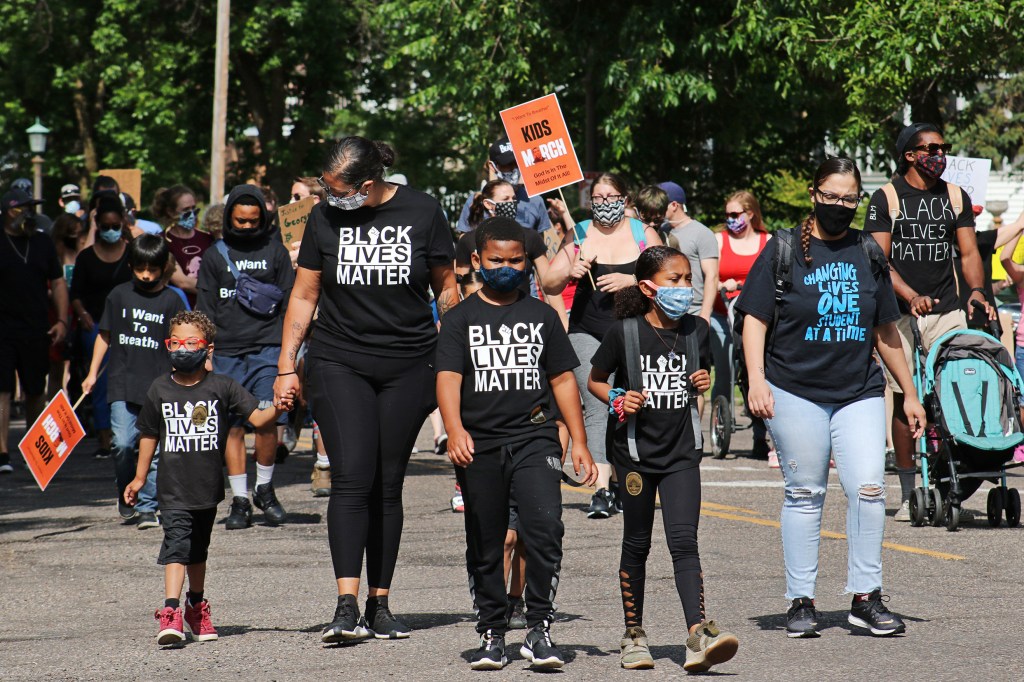
Families join a kids' march in Saint Paul, Minnesota, on June 6, 2020. They are peacefully protesting racism.
SAUNYA PETERSONThere were numerous marches in Saint Paul in the spring of 2020. People were protesting
protest
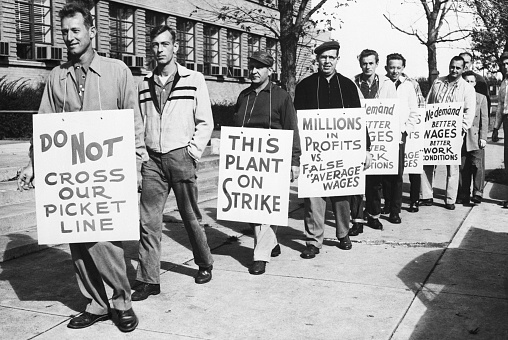 BETTMANN—GETTY IMAGES
to complain about or object to
(verb)
The factory workers protested because they believed they deserved to be paid more.
racism. They wanted Black people to be treated fairly. But this protest was different. Most of the people marching were kids.
BETTMANN—GETTY IMAGES
to complain about or object to
(verb)
The factory workers protested because they believed they deserved to be paid more.
racism. They wanted Black people to be treated fairly. But this protest was different. Most of the people marching were kids.
“Children have a lot to say if they are given a chance,” Maggie Barnes told TIME for Kids. Barnes runs a day-care center in Saint Paul. She organized the march. “Kids have a right
right
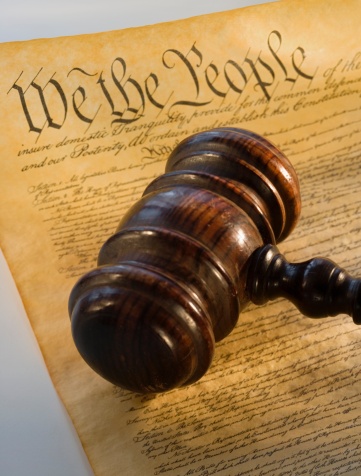 TETRA IMAGES/GETTY IMAGES
a freedom that someone is given by law
(noun)
Many of the rights of United States citizens were put in place in the U.S. Constitution.
to be heard.”
TETRA IMAGES/GETTY IMAGES
a freedom that someone is given by law
(noun)
Many of the rights of United States citizens were put in place in the U.S. Constitution.
to be heard.”
Standing Up
Marching is a way for kids to share their thoughts and feelings, Barnes says. It is a way of showing they want to change the world.
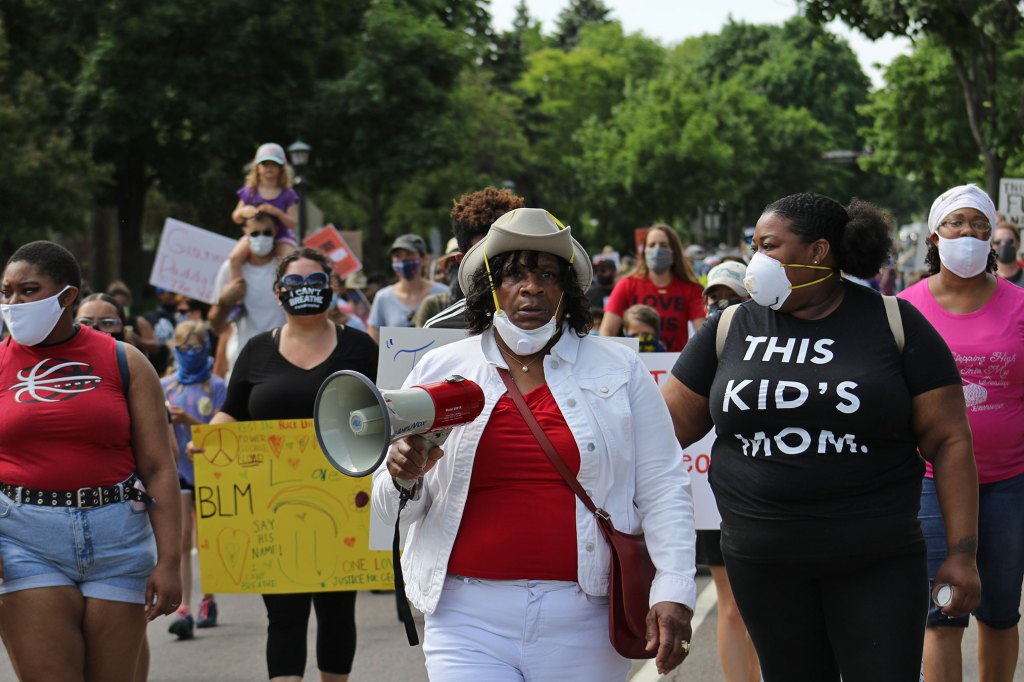
Maggie Barnes leads the June march in Saint Paul.
SAUNYA PETERSONAidan Carter, 10, agrees. He led a kids' march in Portland, Oregon. This year, there have been protests there, too. Hundreds of marchers joined Aidan. “I felt like one of the big people,” he says. “Even though you’re little, you can still be brave and stand up for rights.”
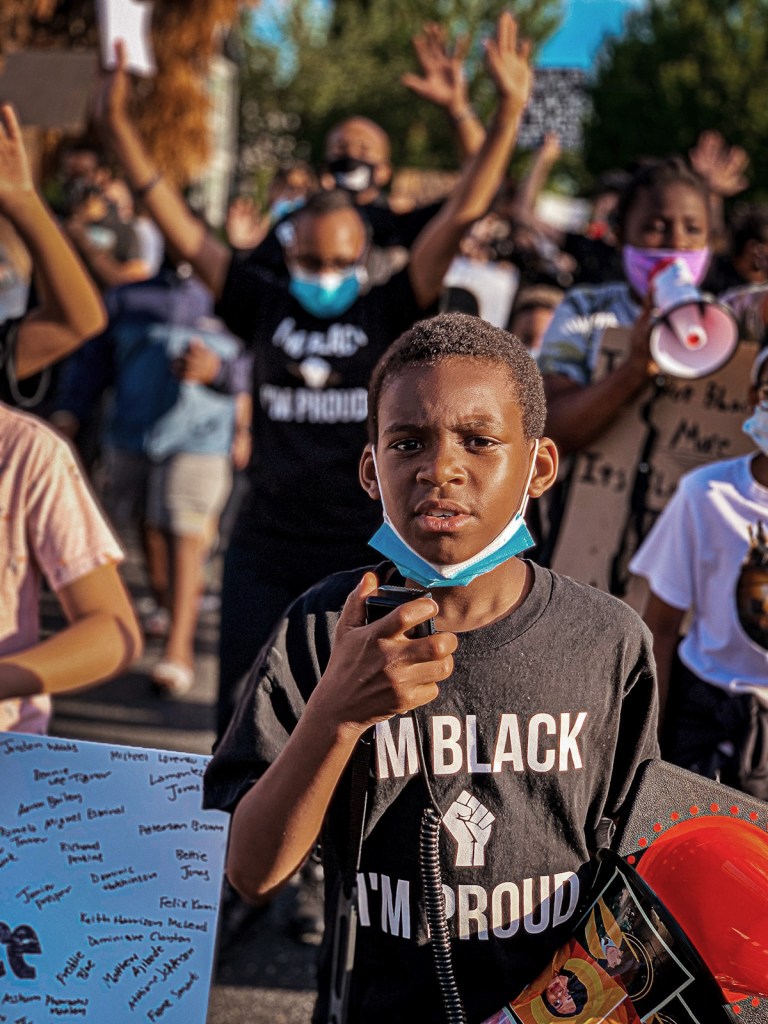
Aidan Carter, 10, leads a kids' march against racism in Portland, Oregon, on June 17, 2020.
ALISHA CARTERStanding up for the rights of others can make you feel good, Barnes says. At the end of the march in Saint Paul, a boy named Malachai ran up to her. “I love you,” he said. “I want a hug.”
Barnes was wearing a mask. It was for protection against the new coronavirus. She bent down to hug the boy. “I could not deny him,” she says.
Signs of Hope
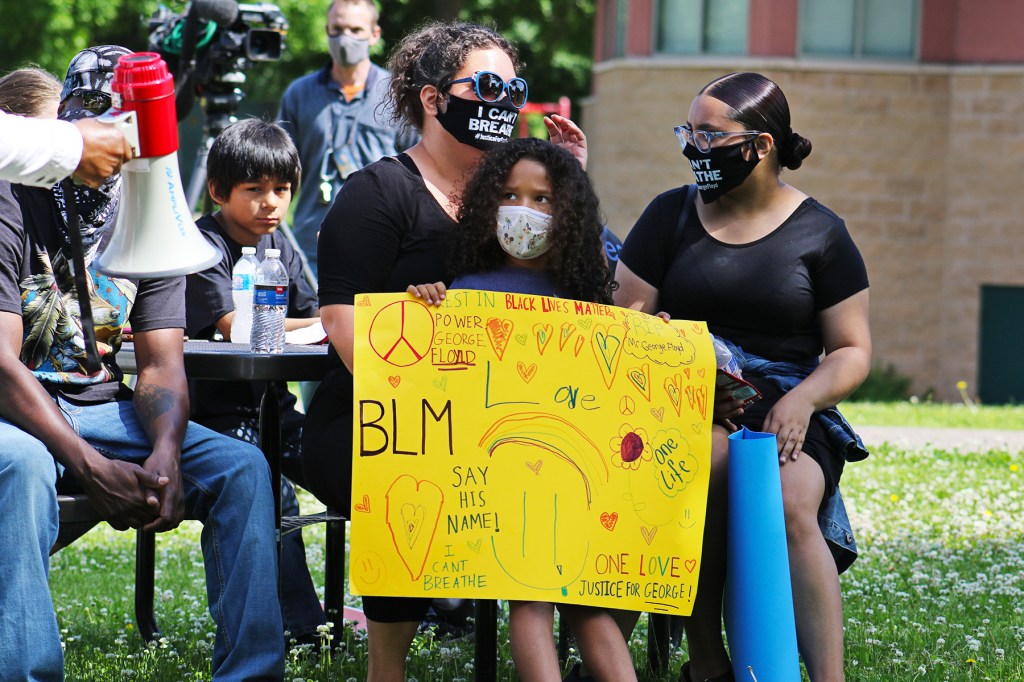
At marches, protesters often carry signs. A sign is a way of expressing feelings, ideas, or beliefs. It shows what the protester wants to achieve by marching.
Usually, signs are homemade. They may use words and pictures. There have been many colorful signs at kids’ marches.
EDITOR’S NOTE: A previous version of this story contained a photo that included inappropriate language. The photo has been removed.






